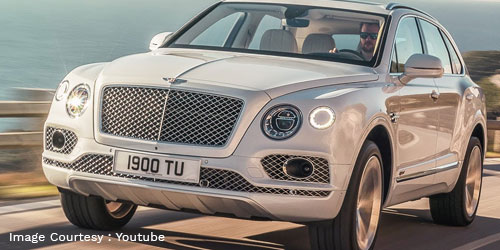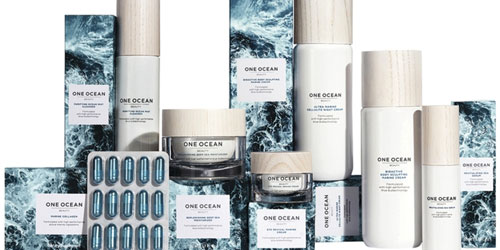Why Is Sustainable Luxury A Good Business Option?
- 4th Jul 2020
- 1925
- 0

Durability, ethical, quality, craftsmanship & timeliness. Confused whether we’re talking about sustainability or luxury? Well, don’t fret. You’re not alone, the correlation between the two concepts is too high.
According to an article in HuffPost, sustainability and luxury brands share similar characteristics - Both call for ‘extraordinary creativity and design’, must be made from ‘exceptional materials’ and should be of really good quality and are often rarely found.
While we’re past the basic idea of how luxury and sustainability go hand in hand and its importance in the current world, let’s look into how various luxury brands are jumping into the bandwagon of ‘sustainability’ and why is this ‘eco-wave’ causing quite a stir in our industry nowadays?
Whether you’re looking at opening new luxury business opportunities or thinking of investing more in your luxury brand, sustainability is that one key concept that’ll open wonders for your brand. From a new found audience to new innovative techniques, sustainability luxury is your mantra to a healthy and successful business.
Many luxury groups are now investing in exploring greener and sustainable options for their products, especially to answer to their customer’s changing needs and behaviour. While others are also joining the eco wave for other reasons like government policies or because their competitors are doing so. Let us look into the various industries and also understand why luxury brands around the world are adopting the concept of sustainable luxury.
1. Change in Shopper's Behavior:
No matter what one says, your customer is truly your king. If you won’t serve your customers, then what’s the point of your business? Hence, it comes as no surprise that changing and modifying yourself according to the changing mindset of the customer is really important. Nowadays, the majority of customers want to shop for sustainable items. Some consumers also have the thought process that they’ll buy less but buy better if it’s helping in the greater good- of the social and environmental world. Not only the old target audience, but even the new audience- the millennials are more conscious than ever.
They’re ready to let go of the insta-worthy pieces and go for a more sustainable piece if it's long lasting and can help contribute to the world. Generation X and the millennials feel that the brands need to do ‘more good’ and not just ‘less bad’ for the environment. With them questioning consumption and materialism in general, sustainability is the only way a business can thrive in the upcoming years.
Another point noticed by key brands is that customers are also willing to try second-hand luxury items and reuse the old. This has seen a rise in various pre-owned luxury items websites and stores, catering to the needs of the new audience. Some of the best include Fashionphile, Vestiaire Collective, Rebag, Luxury Garage Sale, Collector Square, Bob's Watches, StockX and TheRealReal.
The step to sustainable luxury is already being taken by some of the leading brands in the fashion industry. Lead by the Kering group, 32 fashion companies have vowed to become more environmentally friendly including Chanel, Prada, Burberry, Adidas, Nike and even H&M and GAP. The Fashion Pact G7 has three pillars of focus: climate, oceans and biodiversity. With a list of set aims, each individual company is expected to meet their targets and limit global warming by achieving ‘net-zero’ over the next 30 years.
2. The Greater Good of Environment:
Going sustainable is the need of the hour. The harsh reality of biophysical limits is something that luxury business will have to consider. A lot goes into creating luxury goods- digging up for the perfect raw materials, processing them, growing them too, this is getting difficult day by day. Climate change may sound superficial to some but it is actually taking place and a very important matter which requires our focus. Climate change is changing the water availability and crop production around the world. By the rate we use and dispose of these materials, there will be a rise to circular fashion. Circular fashion is an important theme of sustainability. It is an economic system aimed at minimising waste and making the most of resources. It focuses on reusing clothes so that they don’t end up getting dumped in landfills.
In an interview taken by Harper’s Bazaar, with the pioneer of sustainable luxury, Stella McCartney said, “The future of fashion is circular. It has to be…”
While the whole world is grasping this issue slowly, some global luxury brands are moving towards decarbonization and sustainability. Brands who do not prioritize this issue will end, being left behind.
Moreover, the new luxury consumer is going green too. He is becoming very much aware of the issues that we face and have become demanding and sensitive to the way the resources are exploited, the labour behind the luxury products, and everything that goes into creating it. According to a study, consumers will rather be ready to pay a premium price for a sustainable product than purchase a product that will harm the environment.
Hence, sustainable luxury is not only a good business option, monetarily but also socially and morally.
3. Pressure from the External Communities:
The indirect and even more powerful pressure comes from external forces like government, competitors, celebrities and high-profile people. With the presence of famous celebrities like Leonardo DiCaprio, Mark Ruffalo and Emma Watson who have started being vocal about sustainable and greener Earth issues, the pressure is being created on luxury business. They have become sustainable luxury advocates, have a rich fan following and regularly appear in major magazines too following which many of their fans are turning into activists too and hence the pressure deepens. Even competitors play a major role in this. If your competitor brand is going sustainable, you will have to level up your business strategies and go sustainable as well before you probably end up losing a major chunk of your clientele. Not only this, even for your brand reputation, sustainability is a go-to. Customers now are starting to question the brand and its values, they need to know everything about the product that they buy. No more luxury brands can maintain their mystic aura and have to be open about their business. Hence, even for the sake of brand reputation, sustainability has become an important business element.
Lastly, laws and social norms are changing. Standards for the work environment and working conditions for labour laid by the International Labour Organisation are becoming more stringent and luxury businesses will have to adhere to them now. In the past, luxury brands like Tiffany have come under shade by the public for their mining process and labour issues. Post which, Tiffany has come up with sustainable plans. Tiffany claims, “We uphold high standards in quality and for social and environmental practices. For instance, we have long pushed to expand the Kimberley Process definition of “conflict-free” diamonds to protect human rights and the environment”
More and more luxury brands are now adopting the concept of sustainable luxury and joining hands to create the eco-wave. Whether it's because of their changing customers, improving their brand image, driving innovation or helping the world with climate changes and ecological breakdowns, going sustainable is a necessity and no more just a ‘trend’. It is the new normal and luxury brands will have to take an extra step to inculcate these changes into their process. Charging premium prices isn’t the way to go, instead they should normalise these changes in all their products and charge a nominal rate too. Only then the business will be able to thrive in the coming years.
Here are some luxury brands in the world who took up the challenge of conscious luxury:
Stella McCartney:

Arguable, the founder of sustainable luxury in the luxury fashion industry, Stella McCartney and her namesake brand has been doing wonders when it comes to conscious luxury. Her products are made from sustainably sourced fabrics which are recycled like nylon, polyester and organic cotton. Her fashion lines are all Skin-Free and Fur-Free lines.
Taj Hotels:

The Taj Exotica Resort & Spa is built on the beautiful shores of the Andaman & Nicobar islands is one of a kind hotel. To ensure that the fragile ecosystem isn’t harmed the group constructed the whole hotel without felling even one tree and to date doesn’t use plastic in any way to harm the biosphere.
Bentley:

When it comes to the sustainable luxury automobile industry, Betley is one of the first brands to come ahead. Their new hybrid vehicle, Bentley Bentyaga Hybrid is the brand's first step towards electrification. With a 3.0 liter V6 and 94kW battery, Bentley has made sure that they step into conscious luxury but not at the cost of their performance. It is one of the most efficient automobiles ever by Bentley with a CO2 emission of just 79km.
One Ocean Beauty:

One Ocean Beauty is a luxury skincare brand founded by Marcella Cacci who has an immense passion for the ocean. The brand offers a range of skincare products that are made in an award-winning biotech lab and use lab-grown marine actives, like vitamin and amino acid-rich algae, in the products. These products are not even tested on animals and hence a certified Leaping Bunny. Besides this, the company also works in improving the ocean habitat where these vitamins and elements can be found naturally. It believes in focussing on getting all the benefits of natural, marine ingredients without interrupting their habitats. It is also known for its employee relations and is a responsible employer with its equal gender pay policies.
As the world is getting smaller, it is also getting more transparent. The risk that luxury brands face by neglecting the concept of sustainable luxury is too high and can have nasty consequences. A piece of cashmere coat or a diamond rock ring can be pretty to look at and be flawless in its own, but will you as a consumer feel good while wearing something that has caused distress to someone or the world? As we wake up to this reality,luxury companies have no option but to act.
 Hinal Jain
Hinal Jain


Comments
No comments yet.
Add Your Comment
Thank you, for commenting !!
Your comment is under moderation...
Keep reading luxury post